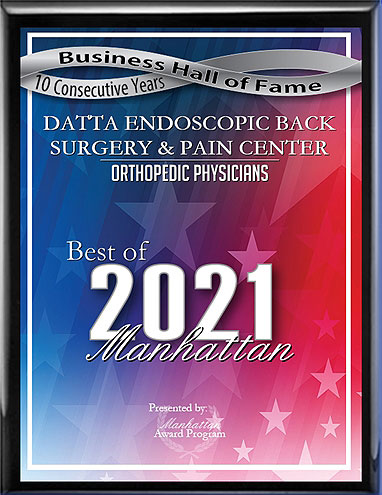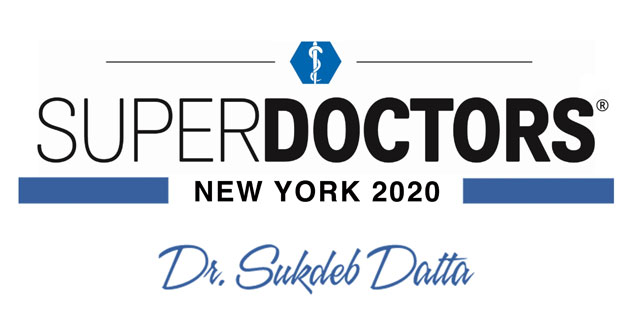Infection is one of the biggest risks patients face after undergoing surgery. This risk may be a source of anxiety for some, and can even cause patients who need surgery to second-guess their decision. Developing an infection is a hindrance to recovery in the mildest cases; in rare cases, infections can even be life-threatening. Fortunately, modern procedures for herniated disc surgery can drastically reduce this risk.
Risk of Infection
Before and after surgery, there are steps all patients can take to minimize the risk of infection. These steps are especially important before herniated disc surgery, since chronic pain on its own can take a toll on the immune system:
Although hospitals are sometimes perceived as sterile and clean, they are in fact repositories for infections of all kinds. Hospitals allow for the proliferation, exchange, and evolution of bacteria and viruses. In particular, hospitals are plagued by antibiotic-resistant strains of bacteria, such as MRSA. For this reason, a person staying in a hospital has a far greater risk of developing a serious infection than someone able to recovery from surgery at home.
Traditionally, herniated disc surgery could only be performed in a hospital, and was followed by several days' stay in the hospital before returning home. However, laser disc surgery is performed in an outpatient setting, and patients are able to return home the same day. In addition, since offices are so specialized, there are far fewer patients already carrying infectious diseases as opposed to in a hospital.
In addition, traditional open back surgery resulted in a large wound, requiring weeks to heal; such wounds provide excellent breeding grounds for infections. In contrast, laser back surgery requires only one or two small incisions, about the size of a needle.
Thanks to the lack of hospital stay and smaller wound, laser herniated disc surgery has a much lower rate of infection than open back surgery. Open back surgery has about a 4% rate of infection, while laser back surgery has a 0.07% rate of infection.
While open back surgery still needs to be performed for some conditions, most routine spine disorders, including herniated discs, can now be treated using laser surgery. This means a better outlook overall for recovery after back surgery, especially for people with already compromised immune systems.
Seeking Surgery
All surgeries carry some risk of infection, no matter how small. The bottom line is, the benefits of herniated disc surgery are widely held to outweigh the potential risks; no physician will recommend surgery if he or she does not believe this to be true in your case. Modern techniques have reduced the potential for infection to a negligible level, making surgery a stronger choice than ever for people suffering from spine disorders.
When undergoing any procedure, it's important to feel confident that your physician is both experienced and up-to-date. To talk to a leading expert in the field of laser back surgery, please call the Datta Endoscopic Back Surgery and Pain Center at 212-420-0312.
Risk of Infection
Before and after surgery, there are steps all patients can take to minimize the risk of infection. These steps are especially important before herniated disc surgery, since chronic pain on its own can take a toll on the immune system:
- Get enough sleep - chronic sleep deprivation reduces immune response.
- Reduce the stress in your life as much as possible, especially in the days just before and after the procedure.
- Eat a healthy diet.
- To the extent you can comfortably do so, exercise regularly.
- During surgery, ask to be kept warm - being cold during surgery weakens the body.
- Take the full course of prescribed antibiotics - not doing so allows a small number of lingering bacteria, which were resistant to the antibiotic, to proliferate. This puts both you and those around you at risk.
- Touch your wound as infrequently as possible, and follow your surgeon's instructions regarding post-surgery care.
While no surgery has an absolute zero risk of infection, these common-sense steps help minimize your risk. Combined with choosing a procedure that is already low-risk, the risk of infection can approach zero.
Although hospitals are sometimes perceived as sterile and clean, they are in fact repositories for infections of all kinds. Hospitals allow for the proliferation, exchange, and evolution of bacteria and viruses. In particular, hospitals are plagued by antibiotic-resistant strains of bacteria, such as MRSA. For this reason, a person staying in a hospital has a far greater risk of developing a serious infection than someone able to recovery from surgery at home.
Traditionally, herniated disc surgery could only be performed in a hospital, and was followed by several days' stay in the hospital before returning home. However, laser disc surgery is performed in an outpatient setting, and patients are able to return home the same day. In addition, since offices are so specialized, there are far fewer patients already carrying infectious diseases as opposed to in a hospital.
In addition, traditional open back surgery resulted in a large wound, requiring weeks to heal; such wounds provide excellent breeding grounds for infections. In contrast, laser back surgery requires only one or two small incisions, about the size of a needle.
Thanks to the lack of hospital stay and smaller wound, laser herniated disc surgery has a much lower rate of infection than open back surgery. Open back surgery has about a 4% rate of infection, while laser back surgery has a 0.07% rate of infection.
While open back surgery still needs to be performed for some conditions, most routine spine disorders, including herniated discs, can now be treated using laser surgery. This means a better outlook overall for recovery after back surgery, especially for people with already compromised immune systems.
Seeking Surgery
All surgeries carry some risk of infection, no matter how small. The bottom line is, the benefits of herniated disc surgery are widely held to outweigh the potential risks; no physician will recommend surgery if he or she does not believe this to be true in your case. Modern techniques have reduced the potential for infection to a negligible level, making surgery a stronger choice than ever for people suffering from spine disorders.
When undergoing any procedure, it's important to feel confident that your physician is both experienced and up-to-date. To talk to a leading expert in the field of laser back surgery, please call the Datta Endoscopic Back Surgery and Pain Center at 212-420-0312.






 EDISCSCULPT
EDISCSCULPT



